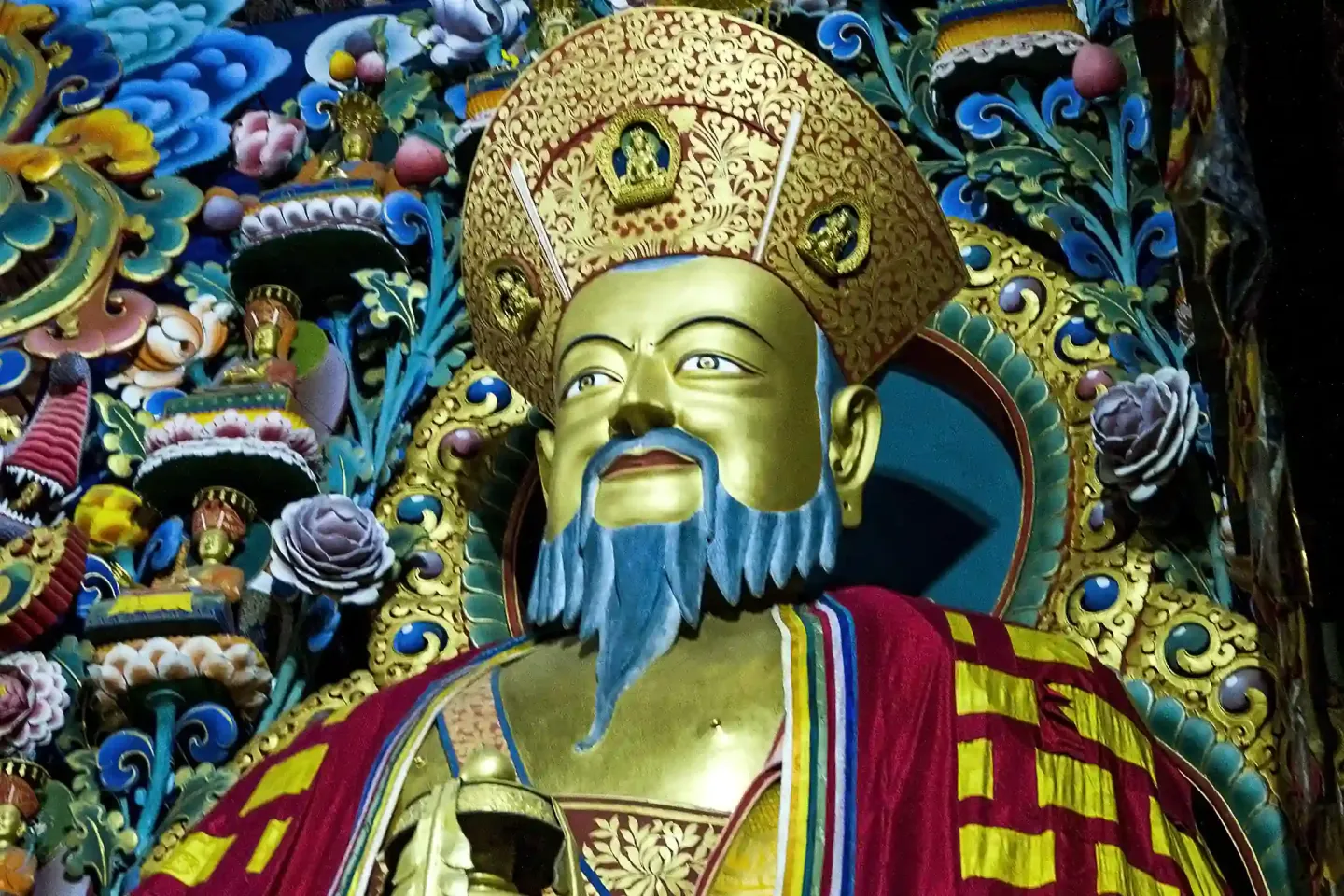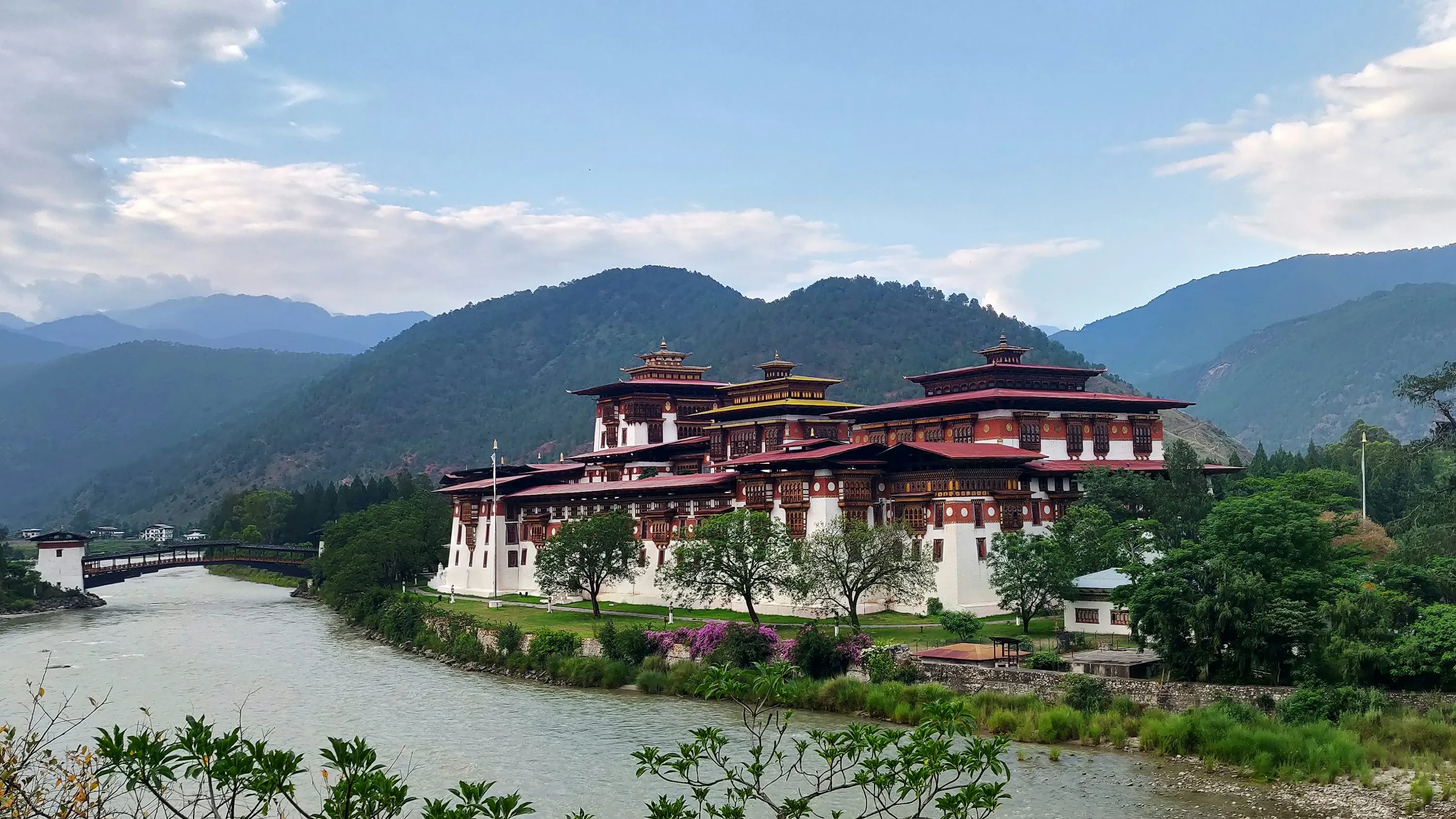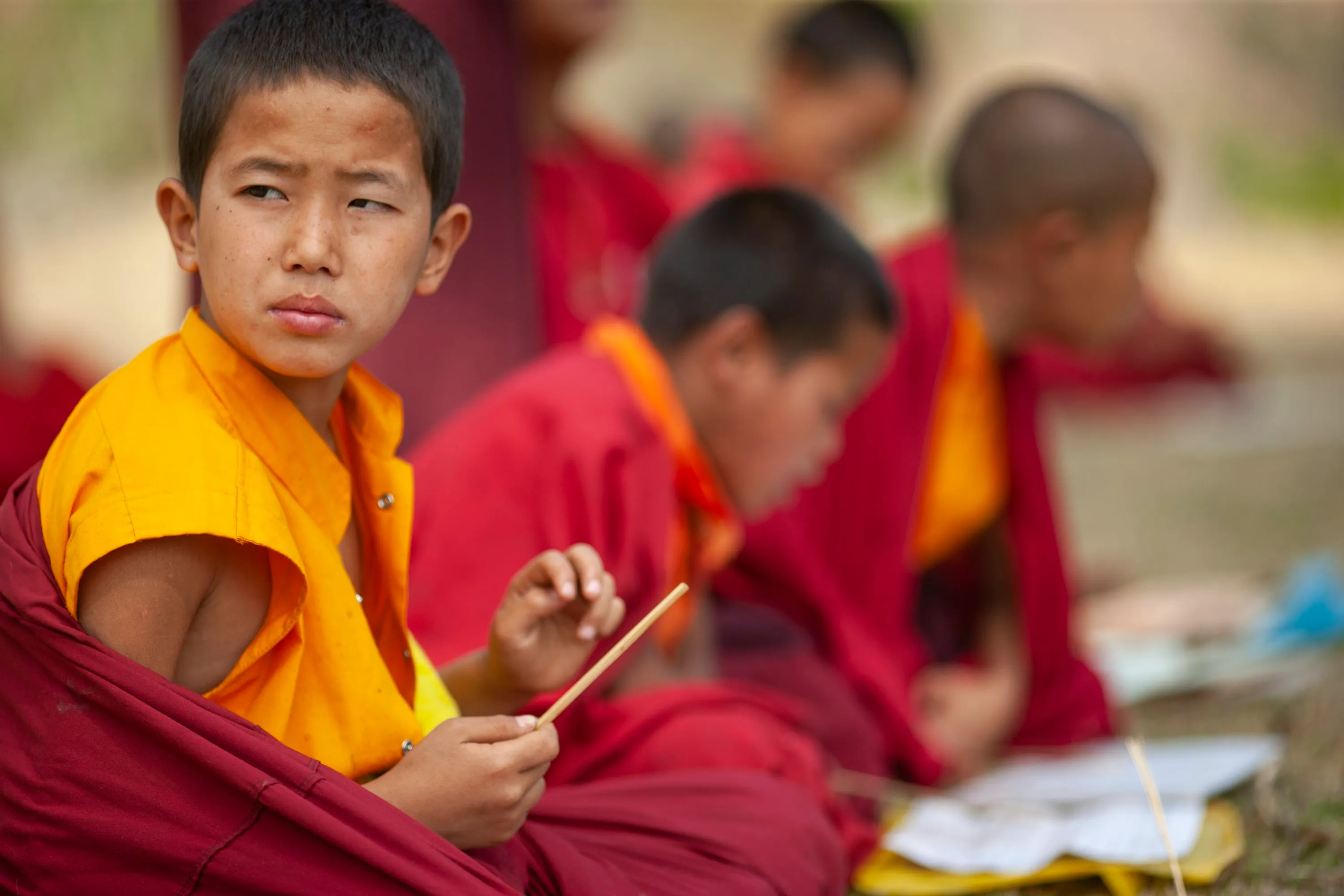Nestled in the eastern Himalayas, Bhutan stands as a beacon of preserved tradition and natural splendor, offering a travel experience that contrasts sharply with the vibrant, volcanic landscapes of El Salvador. As a landlocked kingdom renowned for its commitment to Gross National Happiness, Bhutan invites visitors to immerse themselves in a world where ancient monasteries perch on cliffsides, pristine forests teem with wildlife, and the air resonates with the chants of Buddhist monks. For Salvadoran travelers, accustomed to the coastal rhythms of the Pacific and the bustling energy of San Salvador, Bhutan presents a serene counterpoint—a destination where time seems to slow, allowing for profound reflection amid towering mountains and verdant valleys. Though diplomatic relations between Bhutan and El Salvador are not formally established through embassies, both nations share intriguing parallels as small countries navigating global challenges innovatively; El Salvador pioneered national Bitcoin adoption in 2021, while Bhutan has quietly built a significant Bitcoin reserve through sustainable hydropower mining since 2019, demonstrating a mutual emphasis on forward-thinking economic strategies. Yet, comparisons reveal stark differences: Bhutan's Buddhist monarchy prioritizes environmental conservation and cultural integrity over rapid modernization, unlike El Salvador's republican governance amid urban development and volcanic terrains. This guide, crafted by an experienced Bhutanese travel consultant, aims to equip Salvadoran visitors with a thorough understanding of Bhutan, blending practical advice with cultural insights to ensure a respectful and enriching journey into this mystical kingdom.
Visa and Entry Requirements
Bhutan's tourism is governed by a controlled policy designed to protect its unique environment and culture, mandating that all foreign visitors, including those from El Salvador, must book their trips through licensed Bhutanese tour operators. This approach ensures sustainable tourism and limits visitor numbers, aligning with the kingdom's philosophy of quality over quantity. For Salvadoran tourists, the visa process begins with selecting a reputable tour operator who will handle the application on your behalf once the tour itinerary is confirmed and payments are made. Required documents typically include a passport valid for at least six months beyond your intended stay, a recent passport-sized photo, proof of onward travel such as a return flight ticket, and sometimes a copy of your travel insurance policy. The tour operator submits these to the Tourism Council of Bhutan, which issues a visa clearance letter within a few days, usually 72 hours after full payment. Upon arrival at Paro International Airport, this clearance is presented to immigration officials, who then stamp the visa into your passport, valid for the duration of your tour. Importantly, the visa is intrinsically linked to the Sustainable Development Fee (SDF), a daily levy that funds Bhutan's development initiatives in education, healthcare, and environmental preservation. As of 2025, the SDF stands at $100 per person per night for adults, with children aged 6 to 12 paying $50 and those under 6 exempt; this fee is incorporated into the tour package price, which must be paid in advance via bank transfer in US dollars to secure the visa. This structure means that independent travel is not permitted, and attempting to enter without a pre-arranged tour will result in denial of entry, emphasizing Bhutan's commitment to guided, responsible visitation.
Travel Routes from El Salvador to Bhutan
Journeying from El Salvador to Bhutan involves a multi-leg flight itinerary due to the absence of direct connections, reflecting the remote nature of Bhutan's sole international airport in Paro. Salvadoran travelers typically depart from San Salvador's El Salvador International Airport (SAL), routing through major hubs in the United States, Europe, or Asia before connecting to one of the limited gateways serving Paro. Common transit points include Bangkok in Thailand, Delhi or Kolkata in India, and Kathmandu in Nepal, as these are the primary cities from which Bhutan's national carriers operate. Drukair, also known as Royal Bhutan Airlines, and Bhutan Airlines (Tashi Air) are the only two airlines authorized to fly into Paro, offering scheduled flights from these hubs; for instance, you might fly from San Salvador to Washington D.C. or Miami, then onward to Beijing or Bangkok, before catching a Drukair flight to Paro. Airlines such as Avianca, United, or Copa Airlines handle the initial segments from El Salvador, partnering with international carriers like Air China or Thai Airways for the Asian legs. Paro International Airport is one of the world's most challenging due to its high altitude, surrounding mountains, and short runway, allowing operations only during daylight hours and in clear weather, which can lead to frequent delays or cancellations—travelers should build flexibility into their schedules, perhaps allocating an extra day in the transit city. Booking should be done well in advance, ideally through your Bhutanese tour operator who can coordinate the final leg seamlessly with your visa clearance, and expect total travel times of 25 to 40 hours depending on layovers. Realistic expectations include potential jet lag from crossing multiple time zones and the need for confirmed bookings on Bhutan-bound flights, as these are often limited in frequency and capacity.
Best Time to Visit and Seasonality
Bhutan's climate is diverse, influenced by its Himalayan topography, with four distinct seasons that profoundly shape travel experiences and necessitate careful planning for Salvadoran visitors unaccustomed to such variability. Spring, from March to May, brings mild temperatures averaging 10-20°C in valleys, blooming rhododendrons and jacarandas that paint the landscapes in vibrant hues, making it ideal for trekking and sightseeing with clear skies and moderate crowds; this period aligns well with Salvadoran dry season preferences, offering comfortable weather for outdoor activities. Summer, June to August, ushers in the monsoon with heavy rains, warmer days up to 25°C, and lush greenery, but frequent downpours can cause landslides and disrupt roads, though it's a time for rare festivals like the Matsutake mushroom events in high-altitude regions. Autumn, September to November, is widely regarded as the peak season, featuring crisp air, temperatures of 5-15°C, harvest festivals such as the Thimphu Tshechu with colorful mask dances, and minimal rainfall for optimal visibility of snow-capped peaks—perfect for Salvadorans seeking cultural immersion without extreme heat or crowds overwhelming popular sites. Winter, December to February, delivers cold snaps down to -5°C in higher areas, with possible snowfall adding a magical touch, suited for those interested in quieter visits and festivals like the Punakha Drubchen, but requiring warmer clothing against the chill. For Salvadoran tourists, October and April are recommended as the best months, balancing favorable weather, festival highlights, and manageable visitor numbers, avoiding the monsoon's inconveniences and winter's bite while allowing for a deeper appreciation of Bhutan's seasonal rhythms in trip planning.
Money, Costs, and Payment Methods
Bhutan's currency, the Ngultrum (BTN), is pegged at par with the Indian Rupee, facilitating easy exchanges, but Salvadoran travelers will find US dollars widely accepted, especially for larger transactions, making it advisable to carry crisp USD bills for convenience. Currency exchange is available at airports, banks in major towns like Thimphu and Paro, and authorized hotels, though rates may vary slightly; ATMs are present in urban areas but can be unreliable in remote regions, often dispensing only Ngultrum and sometimes imposing withdrawal limits or fees for foreign cards. Credit cards, such as Visa and Mastercard, are accepted at higher-end hotels and some shops in cities, but not ubiquitously, so relying on cash remains prudent, particularly for smaller expenses. Tour packages, mandatory for entry, typically encompass accommodations, meals, internal transportation, guides, and entrance fees, with the SDF integrated into the cost—expect daily rates starting from $250 per person during peak seasons, scaling up for luxury options. Extras often include alcoholic beverages beyond basic offerings, personal shopping, tips for guides and drivers (around $10-15 per day per person), optional activities like hot stone baths, and any premium upgrades. Salvadorans should budget an additional $50-100 daily for these, ensuring to convert leftover Ngultrum before departure as it's not easily exchangeable abroad, and always confirm inclusions with your tour operator to avoid surprises.
Health, Safety, and Travel Insurance
Health considerations in Bhutan revolve around its high-altitude terrain, where elevations range from 150 meters in the south to over 7,000 meters in the north, posing risks of acute mountain sickness (AMS) with symptoms like headaches, nausea, and fatigue that can affect even fit travelers. Salvadoran visitors, coming from sea-level environments, should acclimatize gradually, staying hydrated, avoiding alcohol initially, and considering preventive medications like acetazolamide after consulting a doctor. Recommended vaccinations include hepatitis A and B, typhoid, and tetanus, with rabies shots advised due to stray dogs; malaria is low-risk but mosquito repellents are useful in subtropical areas. Medical facilities are basic outside major towns, with the Jigme Dorji Wangchuck National Referral Hospital in Thimphu offering decent care, but comprehensive travel insurance covering emergency evacuation by helicopter is indispensable, as costs can exceed $10,000 for remote rescues. Bhutan boasts exceptional safety with negligible crime rates, thanks to its close-knit communities and Buddhist values, allowing safe solo walks even at night; however, minor risks include slippery paths during rains, stray animals, and occasional petty theft in tourist spots. Salvadorans, mindful of higher crime back home, will appreciate this tranquility but should still secure valuables and follow guide advice on terrain, ensuring insurance policies include trip cancellation and medical repatriation for peace of mind.
Cultural Etiquette and Social Expectations
Bhutanese society is deeply rooted in Buddhist principles of compassion, humility, and respect, requiring tourists to adopt behaviors that honor these values, particularly in sacred spaces where removing hats and shoes, dressing modestly with covered shoulders and knees, and circling clockwise around stupas are essential norms. Salvadoran travelers, known for their warm, expressive interactions, may need to temper enthusiasm with patience and restraint, as Bhutanese communication favors indirectness and avoiding confrontation to maintain harmony. Public displays of affection are frowned upon, and pointing with fingers—common in Latin cultures—should be replaced with an open hand gesture to show respect. In monasteries and temples, silence is golden, photography may be restricted inside, and offerings like incense or small donations are appreciated but not obligatory. Socially, accepting tea or food with both hands signifies gratitude, and addressing elders or monks with titles like "Lama" or "Dasho" fosters goodwill. Modesty extends to clothing, favoring conservative attire over revealing outfits, even in warmer areas, to align with local sensibilities. By embracing these customs, Salvadorans can bridge cultural gaps, turning potential adjustments into opportunities for meaningful connections that enrich their visit.
Connectivity, SIM Cards, Internet Access
Connectivity in Bhutan has improved significantly, yet it remains patchy in remote areas, making preparation key for Salvadoran travelers reliant on digital communication. Wi-Fi is widely available in hotels and guesthouses in urban centers like Thimphu and Paro, often free but with varying speeds suitable for emails and browsing rather than high-bandwidth activities; in rural spots, it may be intermittent or absent, encouraging a digital detox amid nature. Local SIM cards from providers like B-Mobile (Bhutan Telecom) and TashiCell offer reliable coverage, with 4G networks in most populated areas—purchase them at the airport upon arrival or in town shops using your passport and visa clearance, opting for tourist packages that include data, calls, and texts for around $10-20 for a week. Activation is straightforward, and top-ups are easy via scratch cards or apps. While Salvadoran apps and services generally work without restrictions, occasional censorship on sensitive content might occur, prompting the use of VPNs for unrestricted access, especially for social media or news. Travelers should download offline maps and essential apps beforehand, as roaming from El Salvador carriers can be exorbitantly expensive, ensuring connectivity enhances rather than hinders the Bhutanese experience.
Language and Communication
Dzongkha serves as Bhutan's national language, a Tibeto-Burman tongue spoken primarily in western regions, but English is the medium of instruction in schools and prevalent in tourism, easing interactions for many visitors. Salvadoran travelers with limited English may face barriers outside tourist hubs, where locals might revert to Dzongkha or regional dialects like Sharchop in the east. Spanish-speaking guides are available but scarce, requiring advance booking through your tour operator to ensure availability, as most certified guides excel in English with some offering French, German, or Mandarin. Communication strategies include using simple English phrases, gestures, or translation apps like Google Translate with offline capabilities for Dzongkha, though accuracy varies. In hospitality settings, staff often speak sufficient English for basic needs, and your assigned guide will act as an interpreter, facilitating deeper cultural exchanges. Patience and a smile go far in overcoming language hurdles, turning them into charming anecdotes that highlight Bhutan's welcoming spirit.
Packing and Preparation Advice
Packing for Bhutan demands versatility to handle its microclimates, from subtropical warmth in the south to alpine chill in the north, advising Salvadoran travelers to layer clothing for fluctuating temperatures. Essentials include breathable cotton shirts and pants for daytime, warm fleeces or jackets for evenings and higher altitudes, sturdy walking shoes for uneven trails, and rain gear like ponchos during monsoon months. Modest attire—long pants and sleeves—is crucial for temple visits, with a scarf or shawl for added coverage. Personal items should encompass sunscreen, insect repellent, a reusable water bottle for hydration, and any prescription medications, as pharmacies are limited outside cities; include remedies for altitude sickness, diarrhea, and allergies. Power adapters for Type D, F, or G sockets (220-240V) are necessary, along with portable chargers for remote areas with sporadic electricity. Other practicalities: binoculars for wildlife spotting, a flashlight for potential outages, eco-friendly toiletries, and small gifts like chocolates for homestay hosts. Salvadorans unfamiliar with Himalayan conditions should pack light, aiming for 15-20 kg luggage to ease internal flights, and consider compression bags for organization, ensuring preparedness enhances enjoyment of Bhutan's diverse terrains.
Bhutan’s Unique Tourism Philosophy
At the heart of Bhutan's tourism lies the philosophy of Gross National Happiness (GNH), a holistic approach prioritizing collective well-being over economic growth, which profoundly influences its cautious policies to safeguard cultural and environmental integrity. Introduced by the Fourth King in the 1970s, GNH measures progress through pillars like sustainable development, cultural preservation, good governance, and environmental conservation, leading to a "high value, low impact" tourism model that caps visitor numbers and requires guided tours. For Salvadoran travelers, this means understanding why Bhutan eschews mass tourism: to prevent the dilution of traditions seen elsewhere, maintaining authenticity in festivals, architecture, and daily life. By limiting modernization—such as banning plastic bags and tobacco sales—Bhutan ensures visitors engage meaningfully, contributing via the SDF to local communities rather than exploiting resources. This preference for quality over quantity fosters intimate experiences, where travelers become temporary stewards of the kingdom's heritage, appreciating the deeper rationale behind restricted development as a blueprint for global sustainability.
Mindset and Expectations for Visitors
Approaching Bhutan with an open mindset is crucial, as its slower pace of life contrasts with El Salvador's dynamic rhythm, emphasizing mindfulness over haste in a land where "time is elastic" and schedules adapt to weather or festivals. Salvadoran visitors should anticipate limited infrastructure, with winding mountain roads taking hours for short distances and small, family-run hotels offering comfort but not opulent luxury—think cozy rooms with wood stoves rather than five-star amenities. Absent are vibrant nightlife, luxury shopping malls, or fast-paced entertainment; instead, evenings might involve stargazing or cultural shows, aligning with Bhutan's focus on nature, spirituality, and community. Material conveniences like 24/7 services are rare, encouraging disconnection from gadgets to embrace hikes through rhododendron forests or meditations at ancient dzongs. By adjusting expectations to value these intangibles, travelers discover Bhutan's true essence, transforming potential frustrations into opportunities for personal growth and serenity.
Food and Dining Culture
Bhutanese cuisine reflects the kingdom's agrarian roots and Himalayan influences, characterized by bold, spicy flavors from liberal use of chilies, creamy cheese-based dishes, and simple, hearty staples that embody hospitality and communal sharing. Common meals feature ema datshi, a fiery chili-cheese stew considered the national dish, alongside red rice, buckwheat noodles, and vegetables like ferns or mushrooms, often seasoned with garlic and fermented yak cheese for depth. Salvadoran palates, accustomed to pupusas and milder spices, may initially find the heat intense, but options for toned-down versions are available through guides. Dining is a social affair, with meals served family-style in hotels or homestays, accompanied by butter tea (suja) for warmth or ara, a homemade rice wine, in moderation as alcohol is culturally accepted but not overindulged. Vegetarian fare dominates due to Buddhist principles, though pork or beef might appear in non-religious contexts. Embracing food as a gateway to Bhutanese warmth, travelers are encouraged to try local brews and participate in cooking sessions, fostering connections that highlight the role of sustenance in daily rituals and celebrations.
Festivals, Religion, and Sacred Places
Religion permeates every facet of Bhutanese life, with Vajrayana Buddhism shaping architecture, festivals, and daily practices, offering visitors profound insights into a spiritual worldview that values karma and enlightenment. Tshechus, annual religious festivals held in dzongs, feature mesmerizing mask dances, archery competitions, and communal blessings, serving as both devotion and social gatherings—attending one, like the Paro Tshechu in spring, allows Salvadorans to witness living traditions that reinforce cultural identity. At sacred sites such as Tiger's Nest Monastery or Punakha Dzong, strict conduct is expected: dress modestly, remove footwear, speak softly, and refrain from touching artifacts or pointing at deities, as these spaces are active places of worship. Such experiences deepen understanding of Bhutan's harmonious blend of faith and society, where prayer wheels and flags symbolize constant spiritual engagement, inviting travelers to partake respectfully and emerge with a renewed sense of inner peace.
Hidden Challenges and Practical Inconveniences
While Bhutan's allure lies in its unspoiled authenticity, travelers may encounter subtle challenges that test patience, such as leisurely service in restaurants where meals are prepared fresh, reflecting a cultural aversion to rush rather than neglect. Itinerary changes are common due to unpredictable weather closing mountain passes or festivals altering schedules, requiring flexibility that views these as serendipitous adventures. Power outages occur sporadically, especially in rural areas reliant on hydropower, and road conditions—narrow, winding paths with occasional potholes—can make journeys bumpy but scenic. Salvadorans, familiar with tropical storms, will relate to monsoonal disruptions, but embracing patience transforms these inconveniences into part of Bhutan's charm, fostering appreciation for a lifestyle unburdened by modern haste and allowing deeper immersion in its tranquil rhythms.
Shopping and Souvenirs
Shopping in Bhutan focuses on artisanal crafts that showcase centuries-old skills, with markets in Thimphu and Paro offering handwoven textiles like kira and gho fabrics, intricate wood carvings, silver jewelry, and aromatic incense made from local herbs. Absent are large malls or duty-free extravaganzas; instead, small cooperatives and weekend markets provide authentic items, where bargaining is mild and respectful—start with a smile and accept fair prices that support artisans directly. Salvadorans seeking meaningful souvenirs should look for Thangka paintings, bamboo products, or handmade paper, ensuring authenticity by purchasing from government-approved shops to avoid fakes. Customs emphasize sustainability, prohibiting export of antiques over 100 years old, so focus on contemporary crafts that encapsulate Bhutan's cultural essence without compromising heritage.
Altitude Awareness and Physical Preparedness
Bhutan's varying altitudes demand physical preparedness, as rapid ascents can trigger symptoms like shortness of breath, dizziness, or insomnia, affecting individuals differently regardless of fitness. Salvadoran travelers, starting from low elevations, should allow time for acclimatization upon arrival in Paro at 2,200 meters, beginning with light activities and increasing intensity gradually during treks to places like Dochula Pass at 3,100 meters. Hydration is paramount—drink at least three liters daily—alongside avoiding heavy meals and alcohol initially, with guides monitoring for severe AMS requiring descent. Physical prep might include cardio exercises weeks prior, and carrying personal medications, ensuring tours incorporate rest days to adjust, turning altitude into a manageable aspect of the Himalayan adventure.
Security, Safety, and Emergency Information
Bhutan's reputation as one of the safest destinations is well-earned, with low crime bolstered by community vigilance and strict laws, allowing Salvadoran visitors to explore freely without common urban worries. Nonetheless, practical advice includes staying on marked paths to avoid wildlife or terrain hazards, and respecting local laws like bans on smoking in public or importing tobacco. Emergency contacts feature the national police at 113, ambulance at 112, and your tour guide as the first responder, with hospitals in major towns. Since no El Salvador embassy exists in Bhutan, consular assistance routes through the El Salvador Ministry of Foreign Affairs or nearby missions in India; register trips with your government for updates. This secure environment, paired with preparedness, ensures a worry-free sojourn.
Photography and Drones
Photography in Bhutan captures its stunning vistas, but rules mandate permission before photographing people, especially monks or locals, to respect privacy and avoid objectification. In religious and government sites, indoor shots are often prohibited to preserve sanctity, with signs or guides indicating restrictions—always ask first. Drones are strictly regulated; as of 2025, tourists are prohibited from operating them, with permits reserved for government entities, so leave devices at home to evade confiscation or fines. By adhering to these, Salvadorans can document their journey ethically, focusing on landscapes and festivals while honoring cultural sensitivities.
What Bhutan Does Not Have
Bhutan consciously forgoes elements of modern globalization, lacking skyscrapers that would mar its mountainous horizons, fast-food chains to preserve dietary traditions, casinos that contradict Buddhist ethics, and expansive shopping centers favoring local crafts over consumerism. This absence underscores the kingdom's charm, inviting Salvadorans to revel in unadulterated nature and culture rather than seeking familiar conveniences, transforming the trip into a refreshing escape from commercialized norms.
Important Questions to Ask Before Booking a Tour
Before committing to a Bhutan tour, Salvadoran travelers should inquire about the guide's qualifications and language skills, ensuring they are certified by the Tourism Council and, if needed, proficient in Spanish or at least fluent in English to bridge communication gaps effectively. Ask how flexible the itinerary is, particularly regarding weather-related changes or personal preferences for activities like trekking versus cultural visits, to confirm the operator's adaptability without compromising safety. Probe into accommodation details—what types of hotels or homestays are included, their locations, and amenities like heating or Wi-Fi—to align with comfort expectations in varying climates. On food, question dietary accommodations for preferences or allergies, such as reducing spice levels or providing vegetarian options, and clarify if all meals are covered or if extras like snacks are out-of-pocket. For emergencies, seek details on protocols, including access to medical facilities, evacuation plans, and the operator's insurance coverage beyond your personal policy. Inquire about SIM card arrangements—does the guide assist in purchasing one upon arrival, and what's the best provider for coverage? Tipping practices should be clarified: what's customary for guides, drivers, and staff to budget accordingly without awkwardness. Finally, confirm the tour's alignment with your insurance requirements, ensuring it includes necessary proofs for claims, fostering a transparent relationship that enhances the overall experience.
Conclusion
In reflection, Bhutan endures as a rare sanctuary for Salvadoran travelers yearning for authenticity amid a world of homogenization, where the pursuit of cultural depth, untamed natural beauty, and spiritual tranquility eclipses the allure of fast-paced or commodified adventures. This Himalayan kingdom, with its unwavering dedication to Gross National Happiness, beckons those willing to embrace its gentle rhythms, offering transformative encounters that linger long after departure, inspiring a renewed appreciation for life's simpler, profound joys.













